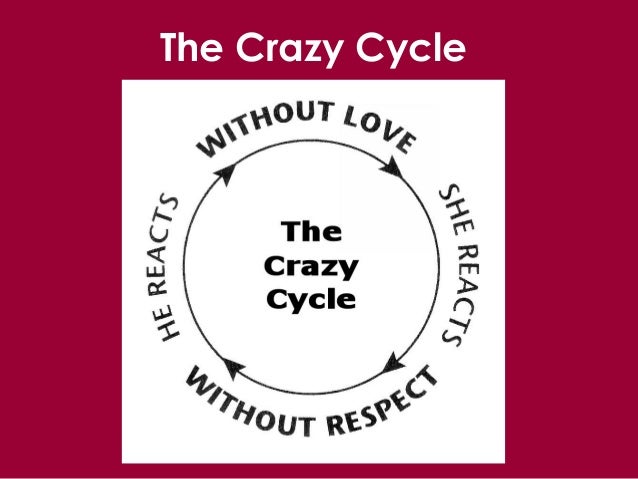What Do Women Want Out of a Relationship?
“Why is My Husband or Boyfriend so Thoughtless and Uncaring?”
Many women in heterosexual relationships often find themselves asking this question.
Their deepest wish is that their husband or boyfriend will finally wake up and treat them like they truly care.
For many women the desire to be loved and desired is often at the top of their relationship wish list. They enter into a relationship with a desire to feel secure in their bond with their partner and they unconsciously equate the feeling of being loved and desired with safety and security.
For this reason all hell breaks lose when they don't feel this love or don't feel like their partner wants them and prioritizes them. Then it sets off a red alarm that they could be abandoned and that their relationship is not safe. Fears now creep up and the outward expression of fear is often anger.
A woman who does not feel loved becomes agitated, critical, and nagging, which are the biological attempts to protest this underlying feeling of not being loved.
What Do Men Want Out of a Relationship?
Of course men and women both want to feel loved, but as the bestselling author of the book Love & Respect Dr. Emerson Eggerichs has offered much convincing proof, men often value respect over love in their hierarchy of needs.
Many men would rather be left alone and unloved in the world than feel inadequate and disrespected by everyone. In fact when forced to choose between one and the other, 74% of men stated they would rather be alone. (research cited by Eggerichs)
This kind of difference between men and women is of course not absolute since, following the research, at least 26% of men would rather be disrespected than left alone.
However, the research does seem to suggest that there are very real biological differences between men and women, along with differences in socialization, that ultimately tend to shape the values and beliefs of men and women differently
As one popular book title states it, it therefore often seems that, “Men are from Mars and Women are from Venus”.
Although it is of course always harmful to overgeneralize, the idea that men and women often have different needs in relationships is also often confirmed in my own work as a couples therapist.
Here I generally find that it is more likely that it is the woman in a heterosexual relationship who feels deprived of love, and angry at her boyfriend or husband for not seeming to care, and that it is the man in a relationship who feels disrespected and not good enough in the eyes of their female partner.
Frequent Complaints of Women:
The woman in a relationship often complains of a husband or boyfriend who seems oblivious, checked out, forgetful, or unsentimental, and she often recites example upon example of times when her partner neglected to make her feel loved or neglected to put her first.
After some time this will make her quite critical of her male partner and make her voice her complaints by saying:
- Why do you never bring me flowers?
- It wouldn’t hurt you to plan a date once in a while!
- Why do you never clean up after yourself, I am not your mother you know!
These complaints are often rooted in the woman’s experience of feeling unloved and her doubts about what kind of "real estate" she holds in her husband’s mind and heart.
The woman in these examples is often thinking:
- Is he even thinking of me?
- Does he even care what I am feeling?
These questions of course are rooted in the deeper and more existential questions about her role and worth in the relationship.
She thinks to herself:
- Do I matter to him?
- Am I worth loving?
When in the woman's mind the answer to these questions is “no” a primal alarm system is activated, and her husband or her boyfriend better watch out!
Now she unleashes her fury and becomes critical, dismissive, and disrespectful.
Frequent Complaints of Men:
The problem of course is that when the woman feels unloved and becomes critical, scolding, or condescending of her partner, her husband or boyfriend ends up feeling disrespected and devalued.
He now thinks to himself:
- Does she even like me?
- Does she even want to be around me?
And more often than not, he either raises his voice to tell her she is unreasonable and difficult to live with, or shuts down and goes away, or stops listening altogether.
Wearing different lenses than her husband, his wife now thinks to herself, if he responds this way it is surely because he does not care.
And her husband, wearing different lenses than her wife, now thinks to himself, I am not who she wants to be with and she does not really like me.
How Gender Differences Can Lead to a Stalemate:
The husband or boyfriend who might have started out being unloving and thoughtless in the mind of his partner, now ends up feeling disrespected. He did not mean to be unloving, but he came across this way to his wife or girlfriend who has different needs than he has.
Conversely, his wife or girlfriend did not mean to be disrespectful, but she came across this way to her partner who mistook her cry for love as an attack on his adequacy as a person.
Since her husband or boyfriend’s greatest need is not to feel loved but to feel admired for his qualities and adequate as a man, the criticisms and scoldings he receives for his little acts of thoughtlessness and unkindness (which to his wife seem deliberate), end up making him shut down and withdraw more from the relationship. For his wife this adds insult to injury, and starts another round of feeling unloved which in turn leads to more criticism and disrespect...
Dr. Emerson Eggerichs calls this the “crazy cycle”:
He defines this cycle as follows: Without love... She reacts... Without respect... He reacts... Without love...
The problem in many relationships is that the man and the woman often have two different lenses through which they view their relationship and assess how well things are going between them.
How Women Love:
The woman often ends up being the thoughtful and loving one who frequently has her husband’s needs and wishes in mind when she makes her decisions.
Many women have been trained to be this way through an upbringing in which they would face shame and be ostracized if they did not put the preservation of relationships above their own needs.
When a girl makes a drawing in middle school which she does not like and makes this known to her female peers, these peers are more likely to provide reassurance and try to disproof the girl’s beliefs than to offer a factual reality check and confirm that yes indeed this is not her best work. They have been trained by our culture to value rapport building and the caretaking of emotional needs over and above other concerns such as factual truth or honest feedback.
Biologically speaking this kind of caretaking is also deeply embedded. From an evolutionary perspective, the woman is wired to take care of her offspring, and this means that she is naturally disposed to be loving and nurturing.
How Men Love:
Men on the other hand have been trained to be independent and strong and to take care of their own needs or even take a bullet for their friend. They live by a code of honor and are actively discouraged by our culture to show vulnerability or admit to feelings of inferiority, doubt, insecurity, or fear.
Rather than talk about these feelings and reach out for support, men therefore often go away to lick their wounds on their own, bury their feelings underneath a façade, or resort to alcohol, aggression, or sexual release.
Are Men from Mars and Women from Venus?
These biological and sociological differences between men and women often make them different in their orientation to each other and value very different things in their partner.
Men often show their love, not by having deep emotional conversations about their vulnerabilities, but by having a desire to be a good provider, be a good problem-solver, or serve as a protector who would literally take a bullet for his wife.
He may not really understand the emotional proclivity of his wife to feel loved only when she has proof that he thinks of her, as evidenced by getting her favorite coffee brand at the store, or deciding to wipe down the kitchen counter and help her with chores around the house.
These minor concerns of the woman can seem silly or trivial to many men who might complain:
- But doesn’t she see how hard I am working to provide for her and our family?
- Of course I love her, how could she ever doubt that?
Nevertheless, the crazy cycle often takes both partners for another spin:
He doesn’t quite get the ways in which she needs to feel loved and thought of and she doesn’t quite get the ways in which he needs to feel admired and respected.
Finding a Way Out of the "Crazy Cycle":
Only when both husband and wife take the time to understand what motivates the other person to love and respect, do they finally have a chance to change the crazy cycle into a different and more positive one:
Dr. Emerson Eggerichs calls this the energizing cycle:
His love... motivates... her respect... motivates... his love...
If you would like to learn more about stopping your “crazy cycle” and understanding how gender differences might be impacting your marriage, I recommend reading Eggerich’s book Love and Respect, or seeking out couples therapy.





























3 Responses